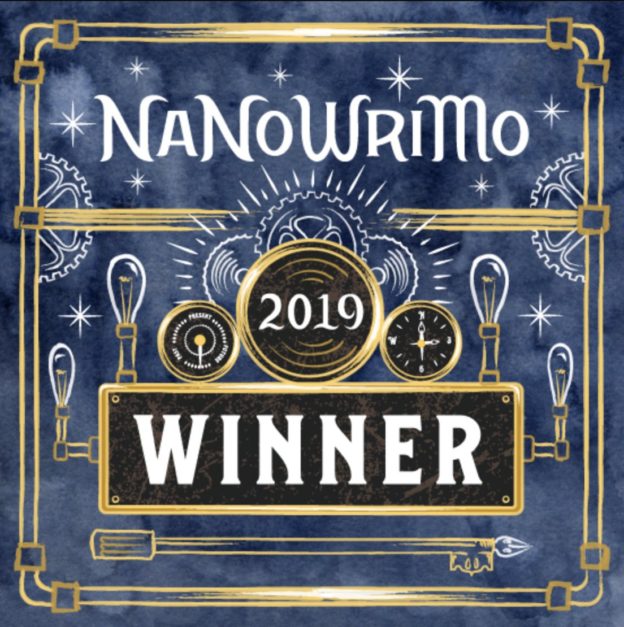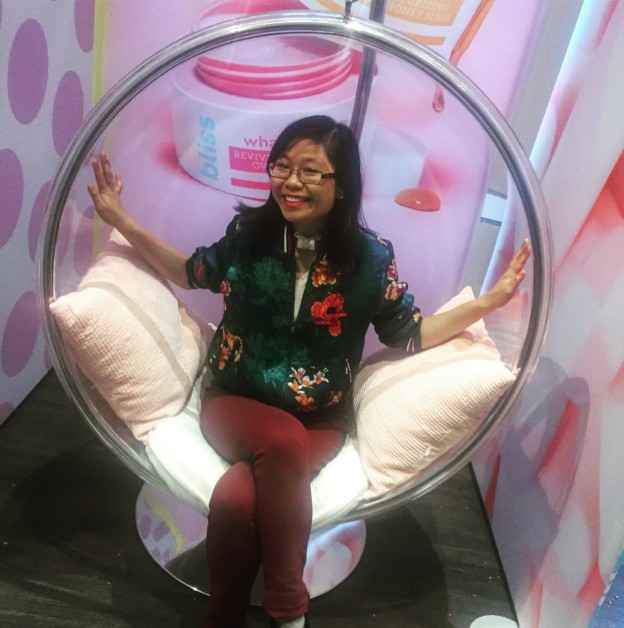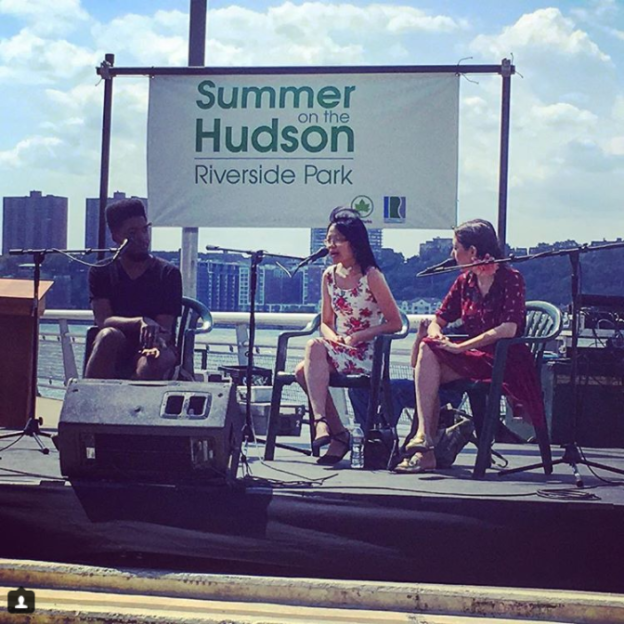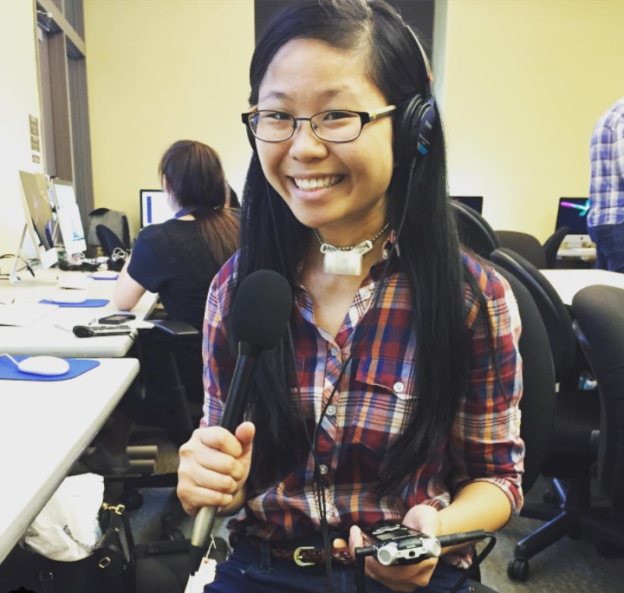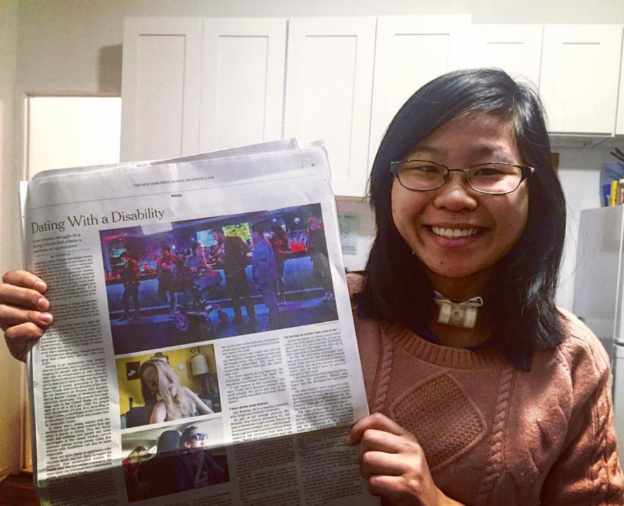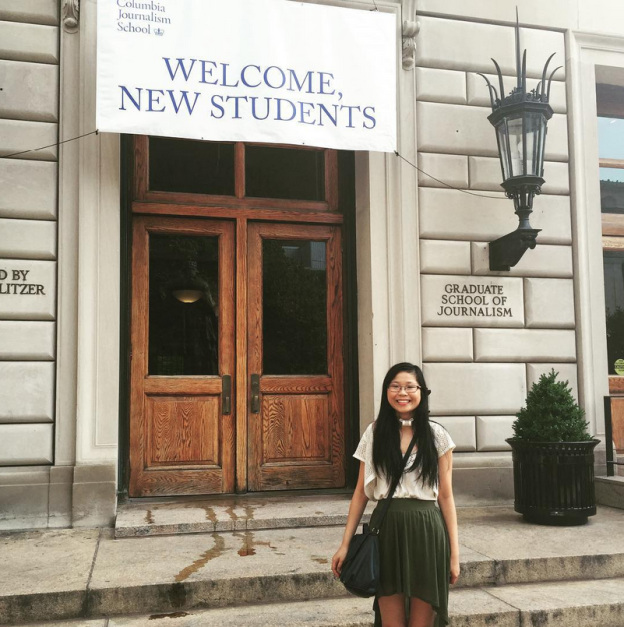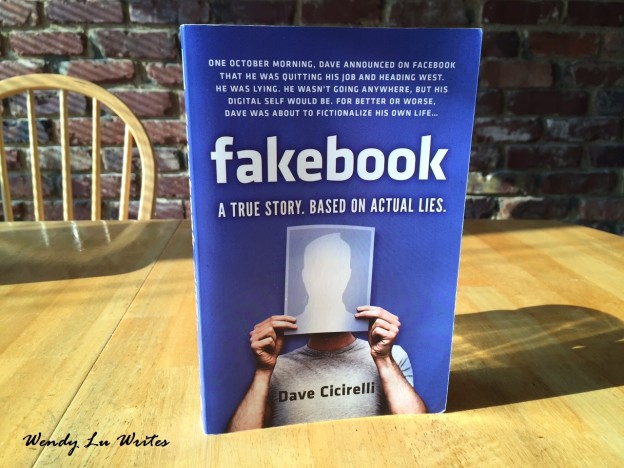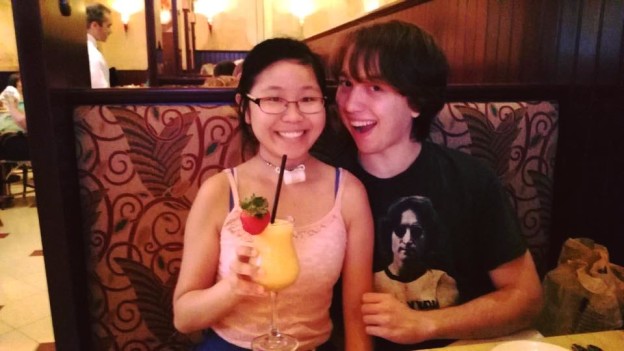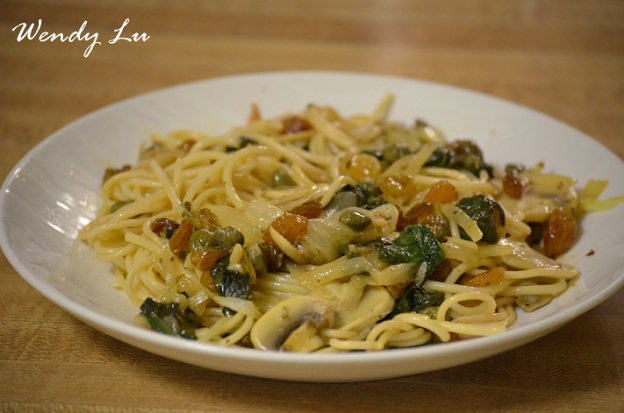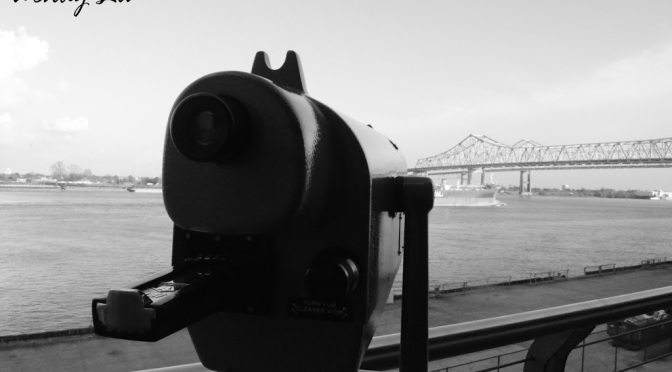
I remember the moment it hit me that everything had changed.
It was September 2021, and I was sitting in my bedroom in New York. I’d taken all of my fall and winter clothes out from storage, ready to switch closets in time for the new season. When I saw what was in my suitcase, memories came flooding back.
Here was my beloved orange blazer, which I bought during a special trip in Europe and wore for a major HuffPost video. It was once my signature piece, one that gave me courage and made me feel like I could do anything. And here was my floral bomber jacket that I used to wear to in-person panels and that made me fall in love with jewel tones. And there were my ripped jeans that looked good with everything.
I had not worn any of these clothes in well over a year — since before the
pandemic. They were like a time capsule, reminiscent of a more innocent, joyful and vibrant past. They had an aura of purity, untouchable, as though if I put any of them on now, they would become tainted.
Looking at them, I felt the ghost of who I used to be. I used to walk into the office every single day wearing a different shade of lipstick. I wore lipstick not because I was insecure about my looks, but because I loved the way it made me feel. Even if I went to work bare-faced with nothing but lipstick on, I didn’t care. It
empowered me. I put on knee-high suede heels. I wore flower garlands. I
experimented with fashion and put together new outfits that made me feel
confident and beautiful at the same time.
When I saw those clothes in my suitcase, I fell apart. I felt ridiculous for mourning over a bunch of jackets and pants. But a part of me also knew that it was about more than just clothes. I’d spent the last year in total quarantine, terrified of losing my life and the lives of my loved ones to COVID-19, working remotely and helping to take care of my newborn nephew. I somehow dodged a brutal round of layoffs at HuffPost (one of many), though my narrow escape came with a lot of survivor’s guilt and bitter frustration over the direction of the media industry. I was editing and reading stories every single day about the state of the world — the mounting coronavirus death toll, the hate attacks against Asian Americans and Pacific Islanders, the worsening climate change, the sheer neglect of people with
disabilities being left behind during both crisis and recovery.
It was one thing after another, an entire year full of collective and individual and generational trauma. One year became two. I endured months of uncontrollable anxiety and worked with multiple therapists to help manage my life better. The fall of 2021 saw some of my worst anxiety attacks, even though at that point things had drastically improved COVID-wise. I think my body and my mind were both catching up to everything that had happened. It was like I’d experienced a lot of micro-shocks in the first year and a half of the pandemic, and then in late 2021 I got hit with one big lightning strike. Every day, I woke up and could barely
function. I sat on the couch, frozen, convinced that somehow I was doomed. It wasn’t just related to COVID. It was everything. Everything made me feel this way.
To get out of my own head, I started spending more time with family. It helped because I was forced to take care of myself so that I could take care of others. I got a new therapist and met with friends outdoors a couple of times. I started a new Instagram video series about my fiction writing journey, which brought me a lot of joy — a strange yet familiar feeling, like an old friend I hadn’t talked to in a long time. When I’d been fighting so hard to survive for so long, things like putting on lipstick and dancing in my apartment seemed silly and unnecessary, even
selfish. On an intellectual level, I knew that it wasn’t. But I needed to catch up
emotionally and realize that these things weren’t self-indulgent or superfluous — they were necessary if I wanted to feel alive again.
If there’s one thing that I wish I could get back from the Before Times, it’s my
ability to appreciate good things when they happen and to accept what’s right in front of me. Now, anytime there’s good news, I find myself bracing for something to go wrong. The first thought that came to mind when I learned I’d been listed under Forbes 30 Under 30 was that the judges had made a terrible mistake and I was a fraud. When I saw that one of my plants had finally sprouted, I immediately
worried that whatever I’d done well was not going to last and it would eventually die. Living during a pandemic for two years has kept me on edge, skeptical and overly cautious, unconvinced that everything will be okay — because, let’s face it, many of us have not been okay for a long time.
It’s also become more difficult for me to believe that I actually deserve good things to happen. I managed to share my Forbes news but I felt rather self-
conscious about it, and I told my partner not to tell anyone about a second award I’d won around the same time because, oh man, I was really going to look
braggadocious then!
What people saw on the outside did not match what I was feeling on the inside. And that made me feel like an absolute imposter. It also made me feel extremely guilty. I was employed, I had a supportive partner, I had housing, and I was
experiencing some of the biggest highlights of my career. Who was I to complain about literally anything? At one point, I wrote a tweet and then decided not to post it because I didn’t want to “bring anyone down.” Here it is:
My depression hit hard this week, and it’s times like these when I wonder if I’m just destined to be miserable & constantly feel like a colossal failure despite all the good in my life. What do I, of all people, have to be sad about? Nothing, and that’s the cruelty of depression.
Even though I didn’t post this tweet, I think about it a lot. I have to believe that I’m not the only one who feels this way. This is what anxiety and depression do to you, right? Sometimes they come after a trigger, and sometimes there’s no reason for them to show up at all — they just creep up on you. Some weeks are amazing and I feel really happy, and other weeks feel like…well, like an alternative reality. I’m learning to be okay with that, and to prioritize myself when things are difficult.
I’ve come to terms with the fact that the things that brought me joy before the pandemic are somewhat different from the things that bring me joy now. I am still figuring out how to reconnect with myself and discover new things.
Here are a few things I’ve learned about myself over the last couple years:
- Taking care of your mental health isn’t a linear process. Even when it feels like you are taking one step forward and then two steps back, it doesn’t mean you’re a failure.
- Only I can determine my self-worth. Not anyone else. My identity is made up of more than just one facet of my life — it encompasses my family, my
relationship and friendships, my love for children’s books and fiction writing, and so much more. - Instead of being a gatekeeper, I want to open the gates and make the
journalism industry more equitable. I have a responsibility to pay it forward and help people who have less access to resources. (That doesn’t mean I shouldn’t have boundaries. I won’t be able to help anyone if I can’t put
myself first.) - Oppression Olympics serve no one. It’s important for me to acknowledge my privilege and validate my own experiences and emotions. I can give myself permission to grieve the things I’ve lost over the past two years, while using the privileges I do have for good.
- This one fragile life that we have is filled with curveballs, both painful and happy moments. When the happy moments come around, we need to catch them, like glow worms, and hold on to them for as long as possible.
- Self-forgiveness is self-love. I tend to be really hard on myself for making even the smallest mistakes, and instead of mentally punishing myself indefinitely, I am learning to let go.
If you’ve gotten this far, thanks for reading. Thanks for being here. Things are tough, and they have been for a while, but I believe in you. You’re doing an amazing job. We’ll get through this together.






